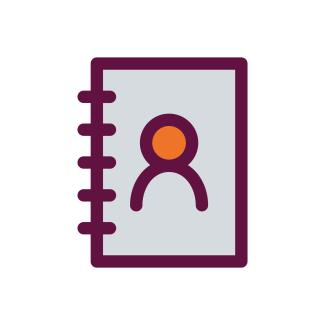Hadamard Doctoral School of Mathematics
The purpose of the Hadamard Doctoral School of Mathematics (EDMH) is to consolidate all doctoral training in mathematics within the area covered by the University of Paris-Saclay, the Institut Polytechnique of Paris and the Paris Sciences & Lettres University. This training ranges from pure mathematics to the most applied mathematics, including mathematics at interfaces (especially with economics, IT, mechanical engineering, physics, engineering, and the life sciences).
With slightly over 400 PhD students and 400 accredited PhD supervisors, the EDMH is extremely open to international recruitment.
The EDMH is heavily supported by the Fondation Mathématique Jacques Hadamard (FMJH) for PhD grants, administrative staff, and funding. The FMJH had an essential role in establishing the EDMH and makes an essential contribution to its development.
Applying to EDMH
There are 4 aspects to a thesis project: a doctoral student, a thesis director, a research topic, and funding secured for 3 years. The first step for a student is to find a thesis director, and a research topic in a field that interests him or her.
EDMH recruits doctoral students in two ways:
Competition mode: for recruitment on doctoral contracts with competition
Non-competitive mode: for all other types of funding (CIFRE, ANR or ERC projects, etc.)
2026 GS Math White Progam and FMJH competition : Dates will be anounced later
- Apply plateform : ADUM
- Thesis subject submission (optional): early April, recommended date
- Closing for applications, with notice from the thesis directors: around April 2026
- Jury EDMH eligiility: early May 2026
- EDMH hearings and jury: around May 2026
Find the dates for other contests and informations about procedures, practical information on the content of the application file, recruitment dates and funding sources on the EDMH website.
Registration and re-registration proceduresare carried out on the ADUM platform.
This section describes doctoral training courses, the doctoral student monitoring committee (CSI), mentoring and the EDMH welcome day.
General information about the examination is provided by each examining institution.
The EDMH is particularly concerned about the future of its PhD students. The training offered and the various follow-up operations have the main purpose of preparing their professional integration, whatever the opportunities they envisage.At the end of a thesis at the EDMH, career prospects, in France or abroad, lead doctors to insert themselves
- In academia: Lecturer, teacher-researcher abroad
- In the secondary teacher: in preparatory class, PRAG...
- Within companies: Jobs in the private sector, R & D sectors from large groups to startups, see Enterprises
- In major public research organizations (CNRS, CEA, INRIA, DGA ...) and large state bodies
PhD students undertake by signing the thesis charter to provide the EDMH, via the ADUM software, their becoming during the 5 years following their defense.
Find details on the EDMH website
Internationalization programs
- At Université Paris-Saclay: internationalization mechanisms (Cotutelle, international co-direction, etc.)
- Institut Polytechnique de Paris: to be set up with the future thesis director
Welcoming foreign doctoral students
- Université Paris Saclay: useful information on welcoming international doctoral students
- Institut Polytechnique de Paris: useful information for international doctoral students
EDMH offers financial support for French language courses for non-French-speaking PhD students, or foreign language courses for PhD students preparing for international mobility. Please contact the EDMH administrative manager or one of the members of the EDMH management committee.
Director: Agnès Desolneux
ENS Paris-Saclay, Centre Borelli
Administrative director: Clotilde d'Epenoux
Université Paris-Saclay, Laboratoire de mathématiques d'Orsay (LMO)


